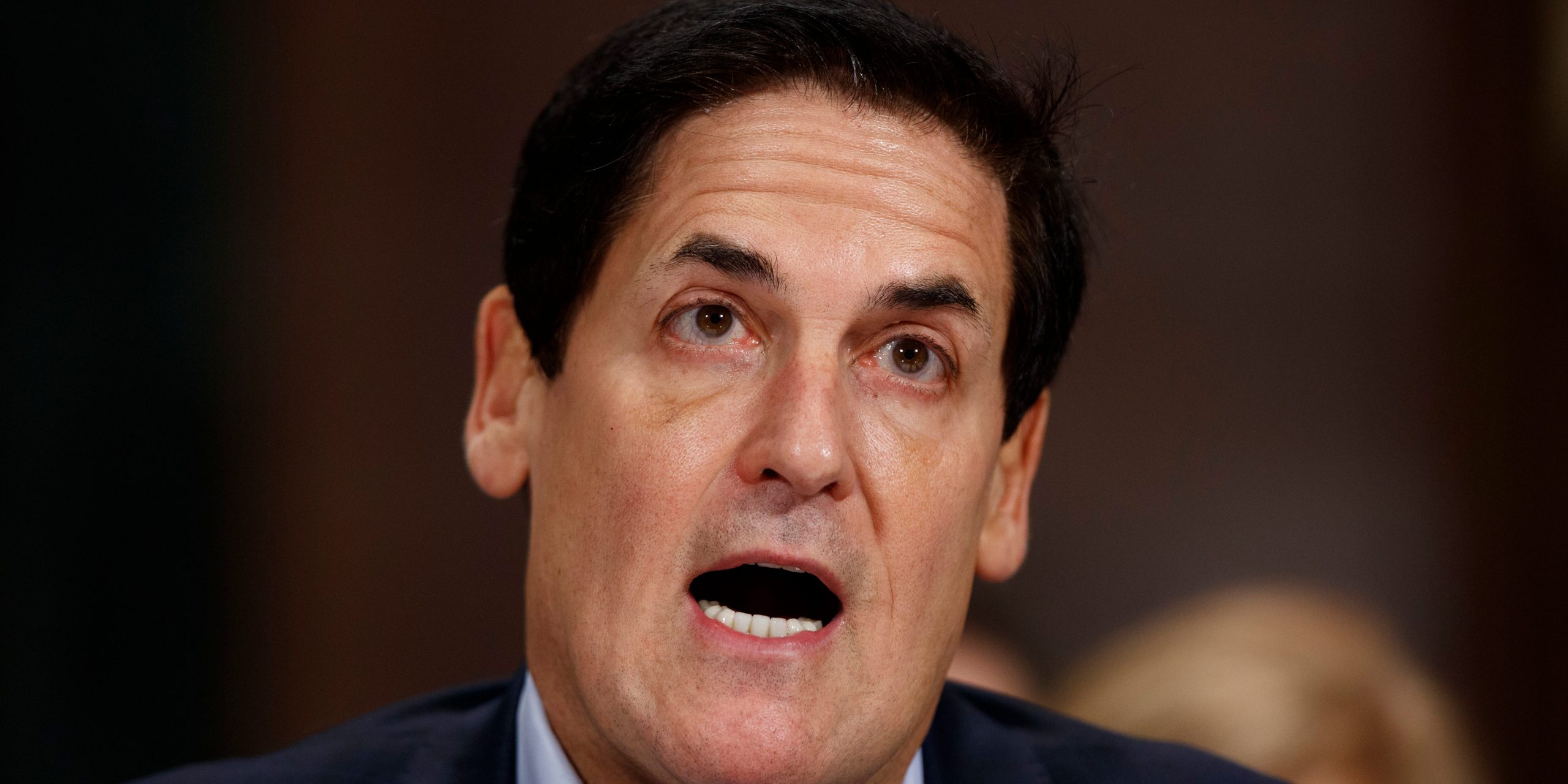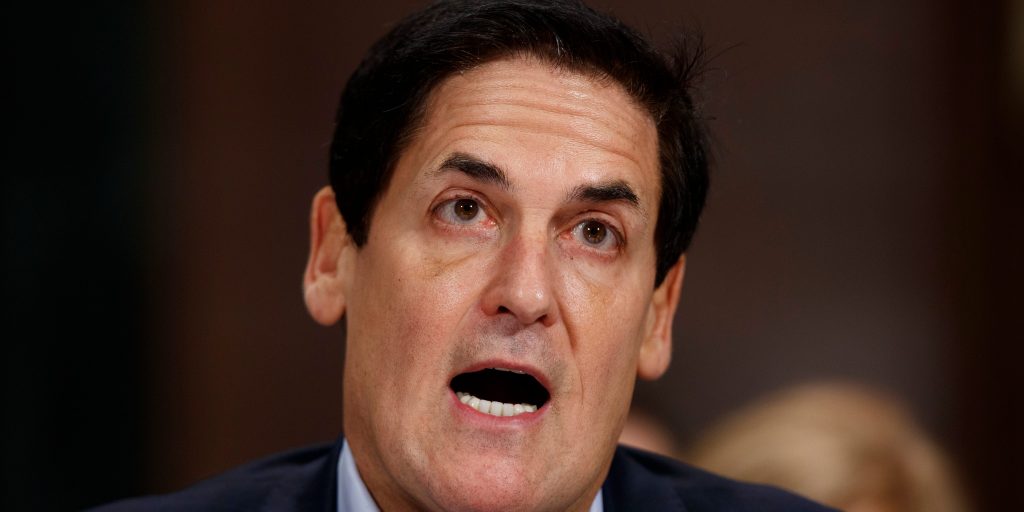
AP Photo/Evan Vucci
- Billionaire investor Mark Cuban said the US could make smart contracts illegal if they are anonymous.
- But he doesn't think this is a bad thing, because it'll only make more people confident about crypto.
- "It will require proof of authorship and identity but it won't hurt innovation, nor slow anything down," Cuban said.
- Sign up here for our daily newsletter, 10 Things Before the Opening Bell.
Smart contracts are the most likely source of crypto-related fraud, and introducing proof of identity could enable more people to use digital currencies with confidence, billionaire investor Mark Cuban has said.
The "Shark Tank" star and vocal crypto proponent laid out his thoughts on regulation in the space in a Twitter thread on Thursday, saying he was open to changing his mind as he learns more.
Starting off by noting that laws against fraud already exist, but that the world of crypto is many layered, he homed in on smart contracts as a focus for discussion.
Smart contracts – code stored on a blockchain – execute automatically when certain conditions are fulfilled. On the ethereum blockchain, for example, they enable two parties to exchange money without the need for middlemen.
"Smart contracts are the most likely source of fraud. Intentional omissions, undisclosed actions, lack of clarity by users," Cuban said in a tweet.
But prior approval for smart contracts won't be required, Cuban believes. Instead, the reliance will be on fraud reports and on audits to prove lack of fraudulent intent.
That means federal regulators won't allow a smart contract to be anonymous - if no one is responsible for it, then it will be illegal, Cuban surmised. Given that, "proof of Authorship and Identity could be a thing," he said.
Cuban said tokenomics - the economics around the launch of a token - is confusing and is a "ripe opportunity for fraud, pointing to the questions around liquidity and how tokens are sold and distributed.
"If you require proof of authorship for smart contracts and tokenomics, the feds and victims will have a person/entity to sue or indict," he said. "Probably at the cost of anonymous innovators, but that's the price that will be paid."
Stablecoins, which are cryptocurrencies pegged to a stable asset such as the dollar, will be the first to be regulated, the investor suggested.
"Why? The variance in the definition by product. What is a peg? What is an algorithmic stablecoin? Is it stable? Do buyers understand what the risks are? It needs standards," Cuban said.
Gary Gensler, the chairman of the Securities and Exchange Commission has said the "Wild West" crypto market is rife with fraud and scams, and there isn't enough investor protection. He told lawmakers this week that the agency is working to get tough on it.
"Personally I think regulation built around existing fraud laws is not a bad thing," Cuban said.
"It will require proof of authorship and identity but it won't hurt innovation, nor slow anything down. It will open the door for more people to confidently use crypto."
